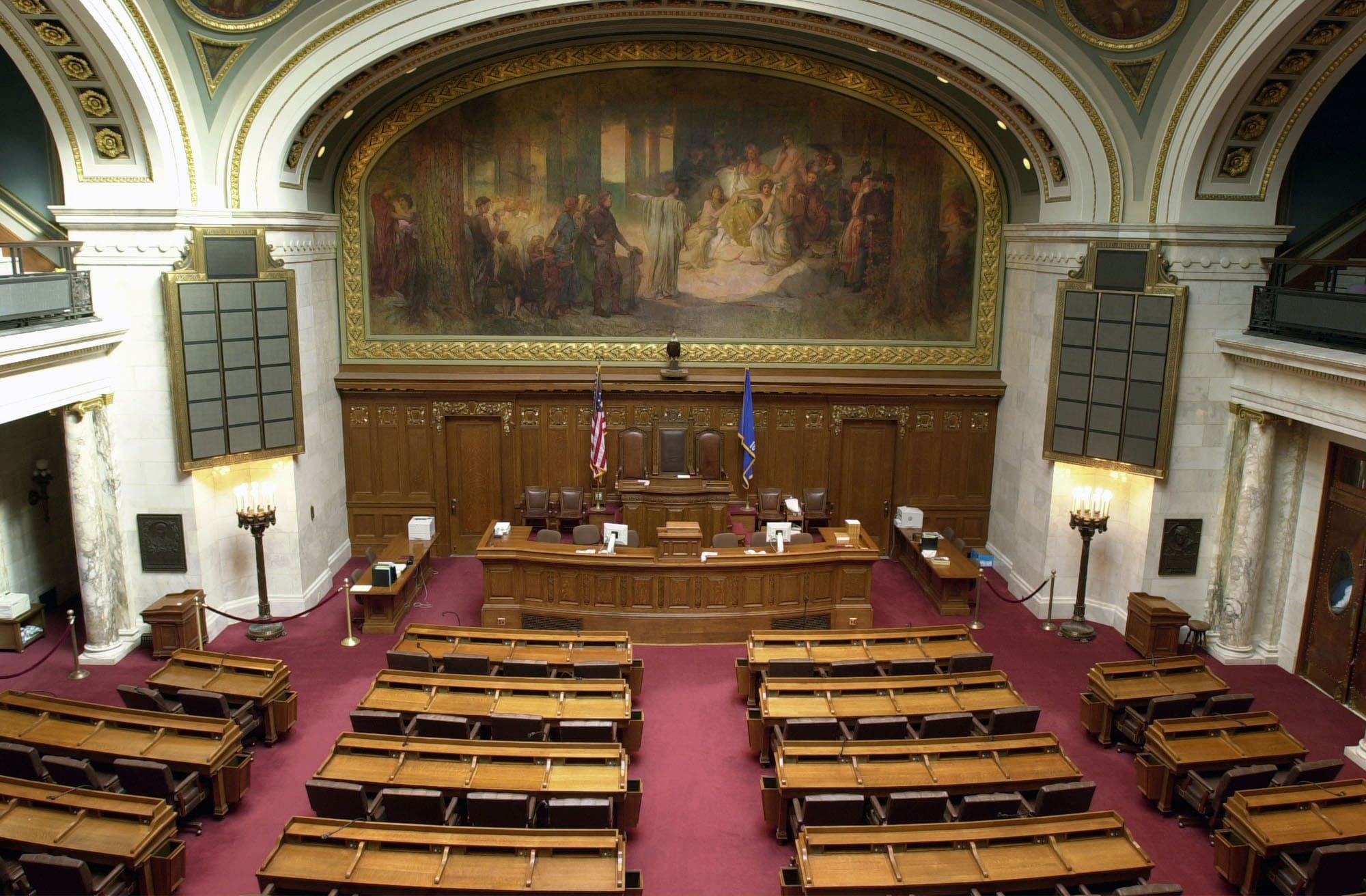About ISLT

The Supreme Court Could End Democracy As We Know It — And Steal the 2024 Election
The insurrectionists who infiltrated the Capitol building on January 6, 2021 in an attempt to stop the final certification of the election results, murder the Vice President, and attack Democratic members of Congress were armed with baseball bats, stun guns, and pipe bombs. They were part of a movement also wielding a fringe legal scheme that Republicans planted throughout the 2020 election cycle. They call it the “Independent State Legislature Theory” (ISLT). We call it the Insurrectionist State Legislature Theory.
Now, the Republican supermajority on the Supreme Court has given itself the opportunity to legitimize ISLT just in time for the 2024 presidential election. Under this radical legal concoction, Republicans won’t need to storm a government building to seize the 2024 election — all they’ll need are five Supreme Court justices to legitimize ISLT through a case this term: Moore v. Harper.
The Supreme Court took up Moore v. Harper as an opportunity to adopt ISLT
ISLT is at the core of Moore v. Harper — a North Carolina gerrymandering case. After the 2020 census, the North Carolina legislature drafted a congressional map that the state supreme court rejected as an illegal partisan gerrymander.1 After the state legislature failed to correct the gerrymandering issue with a new map, a court-ordered special master was brought in to reapportion North Carolina’s districts.2 Members in the state legislature, led by North Carolina House Speaker Timothy Moore (R), are now suing for the right to gerrymander congressional districts without oversight by state supreme courts — using ISLT as the basis of their suit.
The Supreme Court now has the opportunity to lend a veneer of legitimacy to a maximalist version of ISLT — in which state legislatures have near-exclusive control over laws and procedures for federal elections within their states for both congressional and presidential elections. The very theory that emboldened meritless lawsuits and Capitol insurrectionists alike in 2020 could become binding law.
ISLT is a fringe, baseless scheme
The Insurrectionist State Legislature Theory relies on a dubious interpretation of two clauses in the U.S. Constitution, the Elections Clause and the Electors Clause,3 that breaks with existing legal precedent. For the entirety of modern elections, those clauses have given the state legislatures authority to determine laws and procedures for federal elections within their states, subject to the regular legislative process.4 State legislatures can only pass laws and institute procedures that are consistent with their state constitutions (from which the legislatures also derive their power), subject to governor oversight, and checked and balanced by their state judiciaries. ISLT would essentially remove all of those checks and balances on the state legislature — akin to arguing that Congress should not be constrained by the U.S. Constitution, a presidential veto, or judicial review by federal courts.
ISLT would remove crucial checks and balances
ISLT concentrates virtually all power over a state’s federal election procedures into state legislatures and the U.S. Supreme Court itself — at a time when both institutions are (not coincidentally) dominated by Republicans. Removing these checks and balances would mean that for procedures relating to federal elections:
- The governor, regardless of political party, would be unable to veto changes to voting laws;5
- State constitutional provisions, such as those requiring popular elections for the appointment of presidential electors or those requiring congressional districts to be compact and contiguous, would have no binding authority on the legislature;6
- State courts would have no role in reviewing voter suppression rules, radical changes to election procedures, or gerrymandered congressional maps, and they could not strike down these changes for being inconsistent with the state constitution or other state laws;7
- Independent redistricting commissions, which participate in the redistricting process in more than 20 states, could be dissolved;8 and
- Direct democracy practices (voter-initiated legislation, voter-initiated amendments, and voter referendums), that exist in more than half of all states, could be nullified for matters related to federal elections.9
While federal law would still offer some constraints, ISLT would concentrate nearly unfettered control over federal election procedures into state legislatures. The Supreme Court could clear the way for state legislatures to enact radical changes with virtually no oversight and limit the recourse available to the voters. Adopting this scheme would be unprecedented in modern elections. And depending on how far the Court goes, it could give Republican-controlled state legislatures dangerous new leeway to interfere with the 2024 election.
1 Supreme Court of North Carolina Strikes Down Congressional and Legislative Maps,” Democracy Docket (Feb. 4, 2022).
2 “North Carolina Court Adopts New Redistricting Maps,” Democracy Docket (Feb. 23, 2022).
3 Art. 1, §4, clause 1 (the “Elections Clause”) states that the time, manner, and place of elections for Congress “shall be prescribed in each state by the legislature thereof.” Article 2, §1, clause 2 (the “Electors Clause”) gives to state legislatures the authority to direct the manner of appointing electors that select the U.S. President.
4 Michael Sozan, “Supreme Court May Adopt Extreme MAGA Election Theory That Threatens Democracy,” Center for American Progress (Sept. 26, 2022).
5 Thomas Wolf and Ethan Herenstein, “The Case that Could Blow Up American Election Law,” The Atlantic (July 11, 2022).
6 Id.
7 Id.
8 Jason Marisam, “The Dangerous Independent State Legislature Theory,” Mich. St. Law Rev. (2022), 5.
9 Id.
10 Rhiannon Hamam, Michael Liroff, and Peter Shamshiri (hosts), “Independent State Legislature Theory,” 5-4 Pod, Prologue Projects (Oct. 25, 2022).